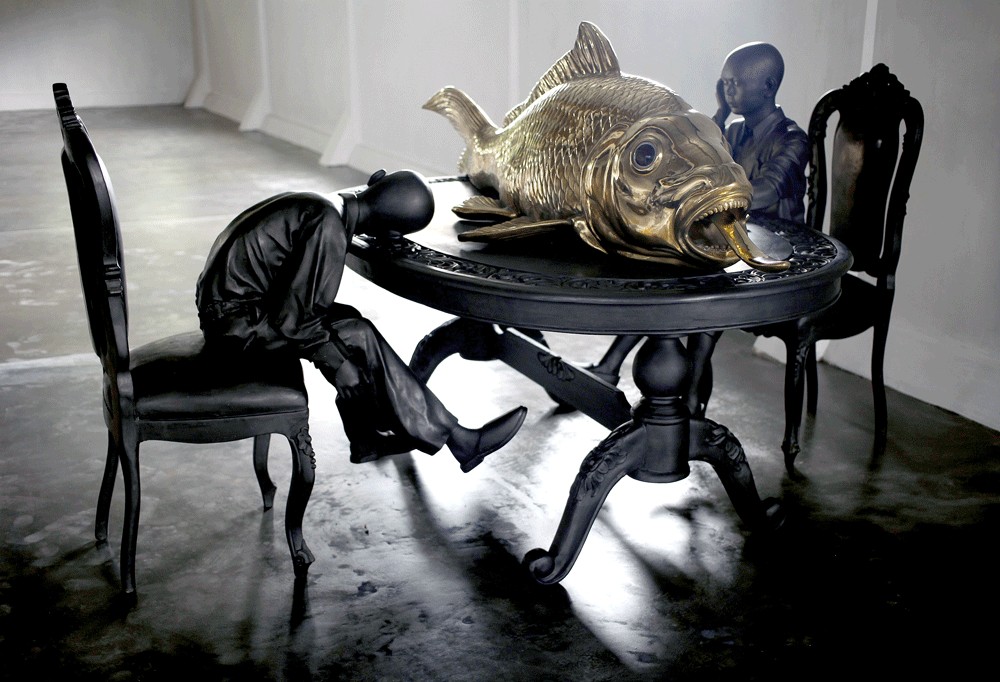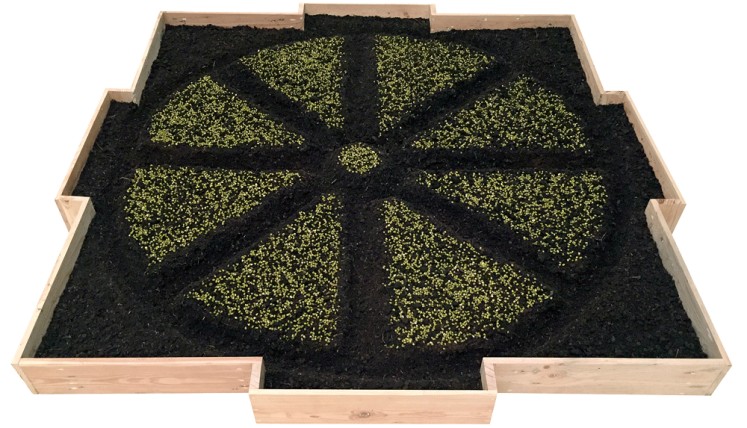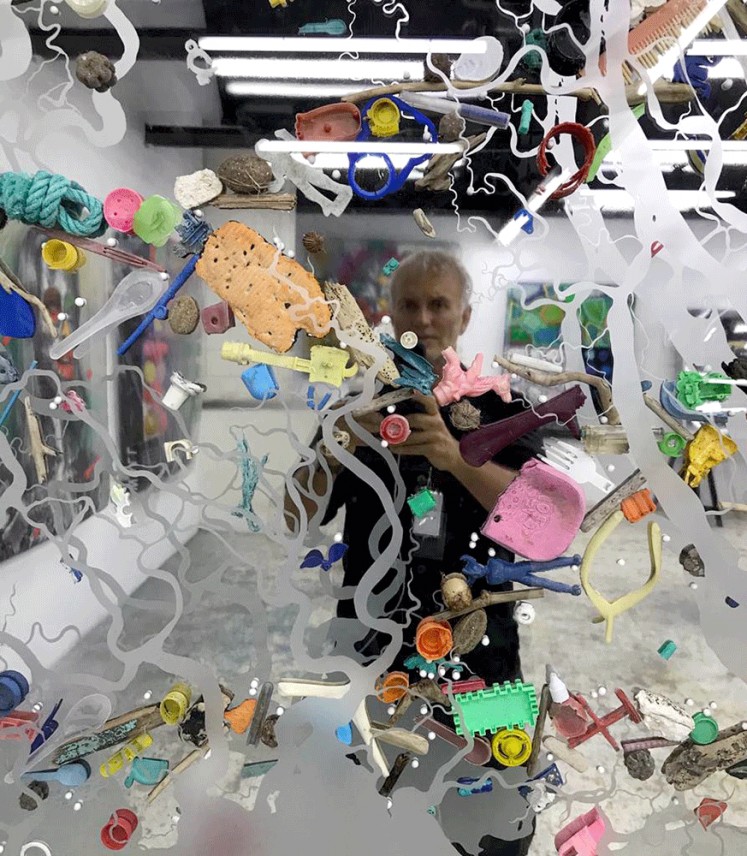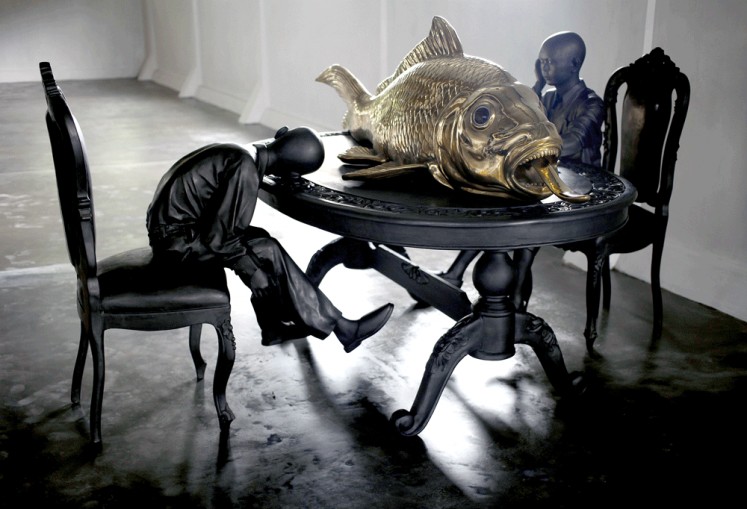Popular Reads
Top Results
Can't find what you're looking for?
View all search resultsPopular Reads
Top Results
Can't find what you're looking for?
View all search resultsUbud Rebirth celebrates the great archipelago
Bali will once again become the center of attention as host of a sustainability forum and art exhibition that respectively aim to foster dynamic and sustainable development while connecting people.
Change text size
Gift Premium Articles
to Anyone
T
he Italian Embassy in Jakarta and the Italian Cultural Institute have announced the launch of Ubud Rebirth, which will comprise two events: a three-day forum on sustainability from Oct. 29 to 31 and an art exhibition inspired by the work of Italian artist Michelangelo Pistoletto from Oct. 31 to Dec. 15. Both will be held in Ubud, Bali.
The forum, with Sustainability through Differences as its main theme, will involve around 100 individuals selected for their expertise and activities on the island.
Held in collaboration with the Italian Honorary Consulate in Bali, Cittadellarte-Pistoletto Foundation, Kayu-Lucie Fontaine and the Setia Darma House of Mask and Puppets, it will see guests share and discuss their experiences that revolve around the 10 themes inspired by the United Nations’ Sustainable Development Goals, ranging from the environment and agriculture to tourism and fashion.
Marco Cassani of Kayu-Lucie Fontaine said the attendees would be divided into groups that would later interact with other groups to share and gain knowledge as well as come up with new ideas.
Cassani explained the discussions aimed to raise awareness on sustainability by creating a network of people who were active in the area and propose a new dynamic to enrich society, as well as make Bali an example of a sustainable and intercultural island.
“The true goal is for art to connect people. If we already made a premeditated goal, we exclude the different possibilities that could happen during the forum,” he said.
Memory of Nature by Arahmaiani (Table Agriculture/Food) (Courtesy Biasa and Kayu-Lucie Fontaine/-)On the heels of the forum will be The Great Archipelago exhibition, showcasing the works of 12 international artists, including Pistoletto, Cassani, Arahmaiani, Ashley Bickerton, Fendry Ekel and Entang Wiharso.
The exhibition’s title is derived from Pistoletto’s piece titled Il Grande Arcipelago (The Great Archipelago), taking the form of a mirrored table, designed specifically for the occasion and produced in Indonesia, representing the seas that “touch” Indonesia and serve as a symbol for the country’s melting pot of different cultures.
Along with Pistoletto’s artwork, which is part of his mirrored table series, the exhibition will also feature the other artists’ take on the table as a domestic object and as a symbol of union.
Ten of the exhibited tables will seat 100 participants of the forum, and at the forum’s conclusion, the tables will be on view for the remainder of the exhibition.
Ashley Bickerton’s Untitled (Table Environment) (Courtesy of Ashley Bickerton/-)Museum of Modern and Contemporary Art in Nusantara (Museum MACAN) director Aaron Seeto said Pistoletto was an important figure in the arts, as he was considered the key driver for the Arte Povera (Poor Art) movement.
“As an artist, he introduced some of these ideas about interactivity, breaking the hierarchies of art. The use of mirrors is also very important,” Seeto said, noting that “poor art” refers to how the materials are sourced from everyday life.
Seeto said a core idea to Pistoletto’s work and the Arte Povera movement was the concept of the Third Paradise.
The First Paradise, he said, was a state of humanity that was connected to nature, the pre-industrial state that we had where nature was very important to our wellbeing and society. The Second Paradise is that of industrialization and modernization, when individuals and society are propelled by advances that bring with them economic wealth.
“The Third Paradise is a desire to learn something from the industrialization to reconnect back to nature,” Seeto said.
Gold Fish Inheritance by Entang Wiharso (Table Tourism) (Courtesy of Entang Wiharso/-)Italian Cultural Institute director Michela Linda Magri said the event was originally conceived by Italian Ambassador to Indonesia Vittorio Sandalli to promote contemporary art “in the Italian way of life”.
“Our idea was to put together [Pistoletto’s art] with the art that we found in Indonesia, and also the people that are connected with social involvement,” Magri said.
With Pistoletto, she said the idea was not just to introduce to Indonesia one of Italy’s best artists, but “bring someone that can interpret in a better way what it means to be involved with other human beings”.
“When we saw all of Pistoletto’s messages connected with the Sustainable Development Goals of the United Nations, we realized we need to [spread] this awareness,” Magri said.














